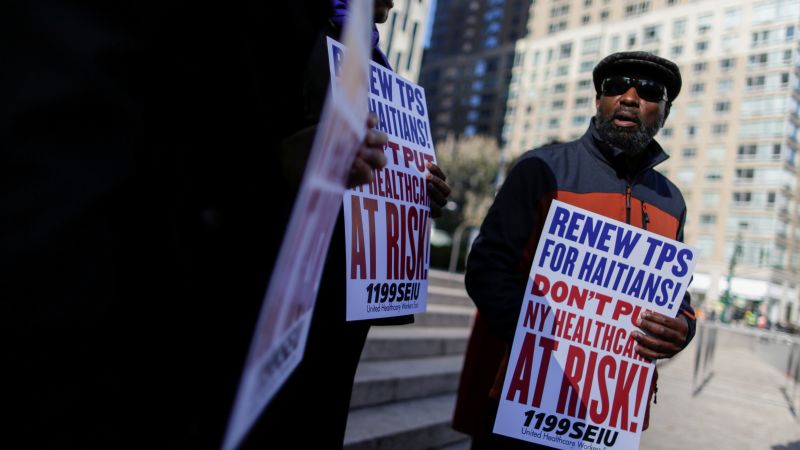A federal judge in Brooklyn has blocked the Trump administration’s efforts to prematurely terminate temporary protected status (TPS) for Haitian migrants. This decision, issued by U.S. District Judge Brian Cogan, asserts that the Department of Homeland Security (DHS) violated legal procedures in its attempt to revoke deportation protections and work permits for over half a million individuals.
The ruling follows DHS Secretary Kristi Noem’s decision earlier this year to rescind former President Joe Biden’s 18-month extension of Haiti’s TPS designation. Initially set to last until February 3, 2026, the Trump administration aimed to curtail this period, first proposing an end date of August 3, which was later adjusted to September 2. Judge Cogan’s decision on Tuesday emphasized that Secretary Noem did not adhere to the congressional mandate requiring a review of current conditions in Haiti before terminating TPS.
Legal Grounds and Implications
Judge Cogan stated, “Secretary Noem does not have statutory or inherent authority to partially vacate a country’s TPS designation.” He further noted, “Her partial vacatur must be set aside as unlawful under the Administrative Procedure Act.” The judge highlighted the immediate and irreparable harm to the plaintiffs, stating that they would lose their right to live and work in the United States based on an unlawful action.
The lawsuit, initiated in March by nine Haitian TPS holders and advocacy groups such as the Haitian Evangelical Clergy Association and Service Employees International Union 32BJ, contended that the abrupt policy change disrupted lives and forced families to prepare for deportation much sooner than anticipated. Judge Cogan, appointed by former President George W. Bush, indicated that the plaintiffs are likely to prevail on the merits of their case and mandated that the TPS designation for Haiti remain effective until at least February 2026, unless lawfully terminated.
Background and Historical Context
The TPS program was established to provide temporary refuge to nationals from countries experiencing armed conflict, environmental disasters, or other extraordinary conditions. Haiti received its TPS designation following the devastating earthquake in 2010 that left the nation in turmoil. Since then, the designation has been periodically extended due to ongoing instability and humanitarian challenges.
The Trump administration’s attempts to end TPS for various countries, including Haiti, have faced numerous legal challenges. Critics argue that these efforts disregard the humanitarian intent of the program and overlook the dire conditions that persist in these nations.
Expert Opinions and Broader Impact
Immigration experts have expressed concern over the potential consequences of terminating TPS for Haitian migrants. According to Sarah Pierce, an immigration policy analyst, “Ending TPS without a thorough assessment of the current conditions in Haiti could lead to a humanitarian crisis, both for those forced to return and for the country itself, which is ill-equipped to reintegrate such a large number of individuals.”
Meanwhile, advocacy groups argue that the TPS program provides crucial stability for families and communities in the United States. “TPS holders are integral members of our society, contributing to our economy and enriching our communities,” said Marleine Bastien, Executive Director of Family Action Network Movement. “This ruling is a victory for justice and humanity.”
Future Considerations and Related Legal Battles
The ruling does not preclude DHS from ending Haiti’s TPS designation in the future, provided that it complies with statutory requirements. A related case, Haitian Americans United Inc. v. Trump, is currently being heard in federal court in Massachusetts, raising similar claims against the administration’s actions.
As the legal battles continue, the future of TPS and its beneficiaries remains uncertain. The implications of these rulings extend beyond the Haitian community, potentially affecting the broader discourse on immigration policy and humanitarian protection in the United States.
For now, the court’s decision offers a reprieve for Haitian migrants, allowing them to remain in the U.S. under TPS protections until at least February 2026. However, the evolving legal landscape suggests that this issue will remain a contentious and closely watched topic in the coming months.
